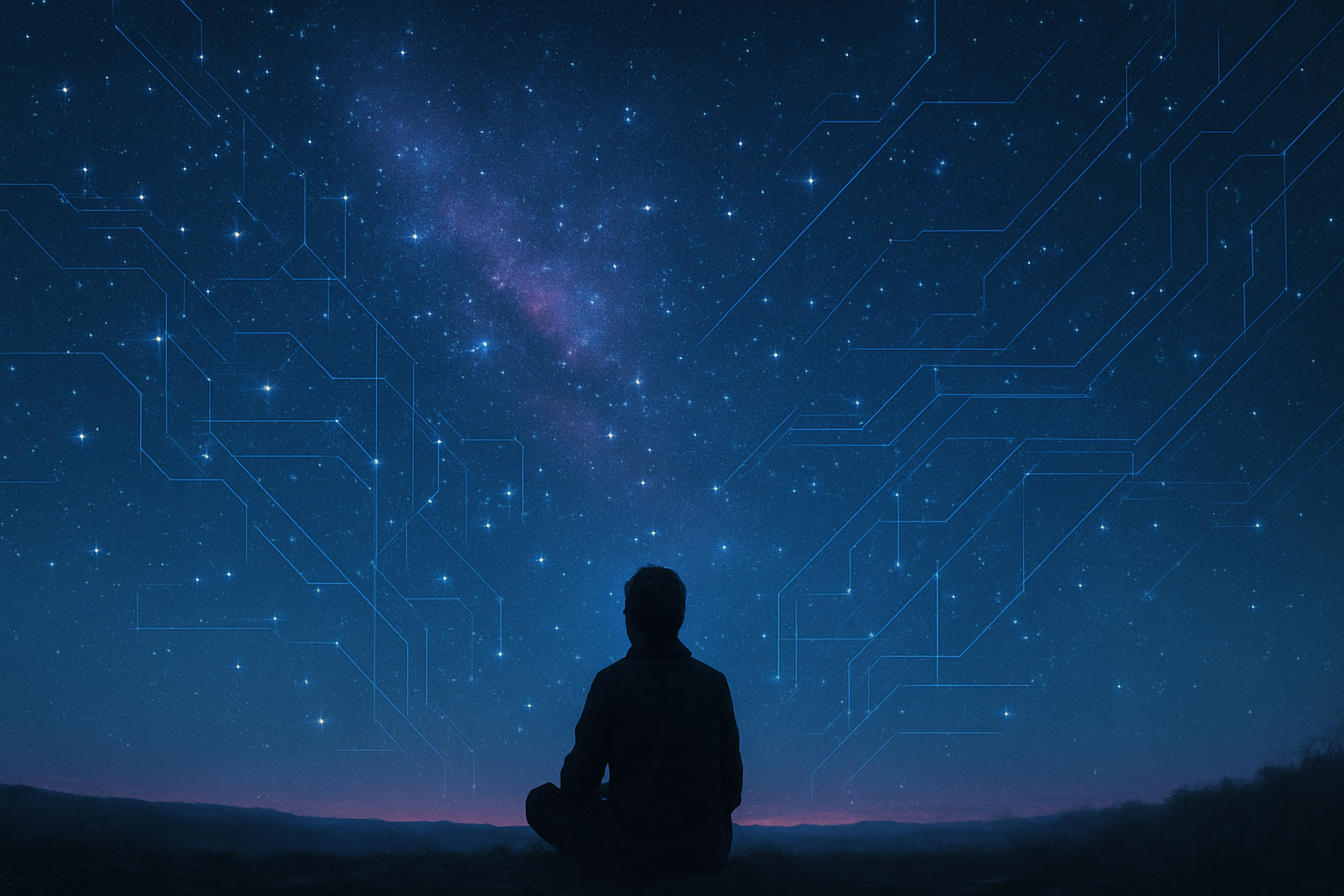Between Code and Consciousness

Imagine a future where we have solved the climate crisis, cured disease, and eliminated poverty. One where the abundance that already exists in our world is distributed more equitably. Where we are in harmony with nature, with time and resources to connect with others, pursue our creative passions, and live a life of meaning.
Now, imagine another future, where humanity has outsourced its thinking, dulled and diminished by tools meant to expand it. A society where truth is fractured beyond repair, where our attention is hijacked, and where we are powerless in the face of technologies we no longer control.
In the age of AI, both futures are possible. But the deciding factor won’t be AI itself. It’s us.
We humans can’t help but create, and this drive inevitably results in the development of a technology that fundamentally alters our trajectory as a species. History shows us that the introduction of every major technology follows a familiar arc: shock, adaptation, and integration.
When the printing press arrived, it democratised knowledge, but also spread propaganda and upended entrenched power structures. Social media connected billions but also fragmented attention and trust. Each time, humanity was thrown into shock, stumbled through adaptation, and eventually integrated the technology into the fabric of daily life.
AI is no different. But unlike past technologies, its scope is total. It’s already reshaping not only how we work, but how we think, create, and even define ourselves.
We’re still reeling from the AI shock that began in 2022 with ChatGPT’s release, unsettling industries, institutions, and individuals alike. Jobs are shifting. Education systems are adjusting. Our very idea of authorship, truth, and originality is under strain. We’re already seeing signs of cognitive decline when we outsource too much of our thinking to machines.
We're now stumbling, resisting and renegotiating our way into adaptation. Humanity struggles with massive change, and historically we have adapted to new technologies in messy, even violent ways. We can expect the same with AI. Labour markets will shift dramatically, power structures will be challenged, and ethical guardrails will be tested. If we look closely, we can see that this is already happening.
But adaptation is also where possibility opens. AI can be a mirror, a thought-partner and a catalyst for change. It can help us redesign our lives, challenge our assumptions and expand our creativity. Used intentionally, AI doesn’t diminish us, but enhances us.
In a sense, AI isn’t separate from us. It’s the collective intelligence of humanity. Our knowledge, creativity, and bias, fed back to us at scale. That makes it both a mirror and a magnifier. It multiplies whatever we bring to it. If we bring fear, ego and greed, it will amplify these qualities, leading to a diminished world on the verge of collapse. If we bring humility, curiosity, and love, it can accelerate our growth as individuals and as a species, leading to a world of prosperity and peace.
Every transformative technology transitions from disruption to infrastructure as it is integrated into our society. However, integration is not neutral. It reflects the inner maturity of the societies that build it.
AI, too, will eventually settle into the background of our lives. But how it does so will depend on the foundation we lay now, and whether we connect its collective intelligence with our collective wisdom. Will it be an enabler of manipulation and dependency, or of abundance and empowerment?
As we stand in this fork in the road, the question is not just how advanced AI will become, but how mature we will become.
The truth is AI won’t decide if humanity is enhanced or diminished.
We will.
So, dear reader, will we use this technology to dull ourselves, or to deepen ourselves? To fracture further, or to connect more meaningfully? To chase ego, or to cultivate wisdom?
Until next week,
Ric
If this post resonated with you, consider sharing it with someone walking their own path of growth.
Each week, I share personal reflections and insights from my journey of navigating the quiet tension between stillness and becoming. If that speaks to you subscribe to my newsletter and join me on this journey.
And if this post stirred something in you today, I’d love to hear from you—feel free to reply or leave a comment below.
